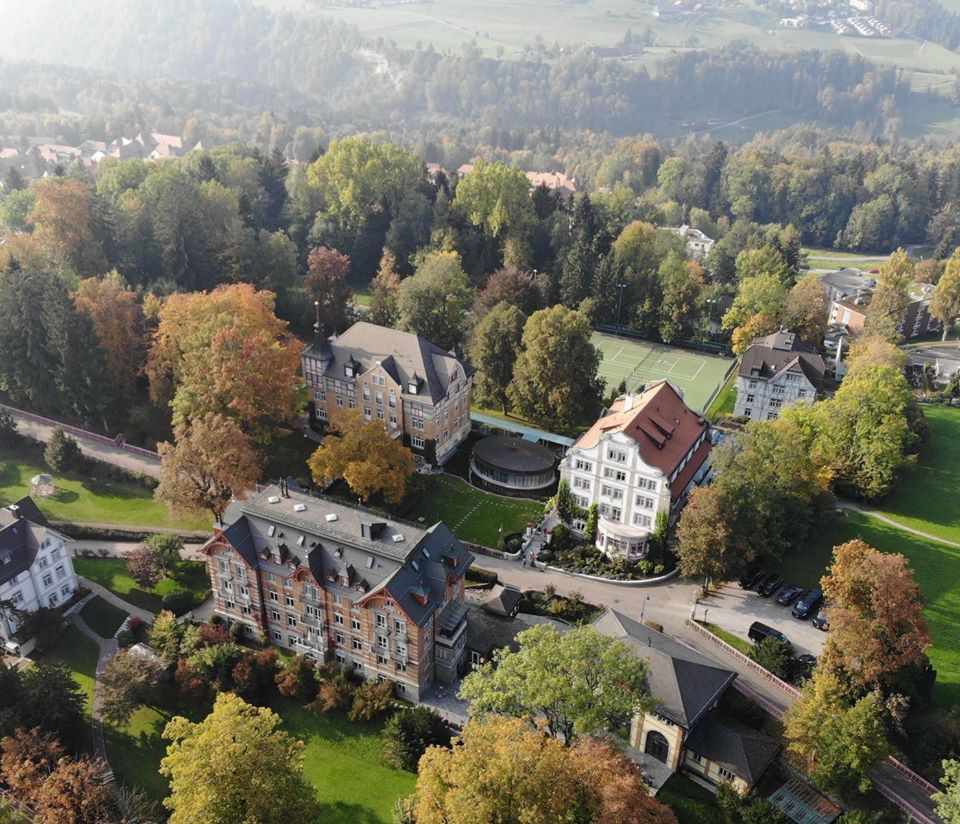Switzerland is a small European country that welcomes students from all over the world. It is a country renowned for its excellent universities, groundbreaking research centres and its commitment to investing in the most promising industries of the future.
I think Switzerland can be considered the best country in the world. The diversity of its culture and geography, the hospitality of its people from all walks of life, its incredible food and the endless list of possible activities offer something for everyone.
In addition, students in cities such as Zurich and Geneva have access to a vast collection of art galleries, museums, theatres and concert halls, while iconic natural wonders such as the Alps are only a few hours away.
There are also many higher education institutions located right in the heart of the Alps, some of which even offer views from classroom windows of beautiful valleys and mountain peaks!
If you are looking for a truly unique adventure as an international student, here are 7 reasons to study in Switzerland.
Compared to some countries such as the USA, education in Switzerland is generally more affordable. The higher education system is known for its high standards and active learning based teaching methods. International students account for 20% of enrolment in Swiss institutes.
University degrees are offered mainly in French and German, although most universities also offer programmes taught in English. Attracting thousands of international students each year, Swiss campuses are known to be exciting and dynamic mixes of cultures. For example, of the 16,000 students at the University of Geneva, around 40% are international students.
As a multilingual country, Switzerland is the ideal place to learn another language, which will give a major boost to your career opportunities after graduation: Germany has one of the strongest economies in Europe and many leading technology, banking and manufacturing companies. French is another very useful language for those wishing to pursue a career in international business. It is the second most spoken language in the EU and the official language of 29 countries.
There are many practical advantages to studying in Switzerland. The crime rate is low and violent crime is very low. Unlike South Africa and much of Europe, which is notorious for its share of snatchers and pickpockets, Switzerland ranks 2nd in the world on the Global Finance Security Index. It is also one of the cleanest countries in the world, with excellent public transport networks and an excellent health system.
Switzerland is an open, exciting and forward-thinking nation that understands the importance of investing in young talent. It’s a place where you can get a world-class education, meet amazing people and maybe even kick-start your career.
That’s why the Swiss enjoy a high standard of living and have levels of well-being well above the global average. The government is open, transparent and fully accountable.

Switzerland is a country that is distinguished by its cultural diversity. Geneva, for example, has 190 different nationalities living and working in its city. And that’s just Geneva. The country is bordered by Germany, France, Austria and Italy, which adds to its diversity.
Multilingualism is a feature that distinguishes Switzerland from other countries. It has four official languages: German, French, Italian and Romansh. Although the country is multilingual, the residents themselves do not speak all four languages. Most of the population speaks Swiss German, also known as Schwiizertütsch.
Immigrants have also influenced the language in Switzerland, as they have brought their own language with them and, overall, they now outnumber Romansh and Italian. So you are likely to hear a lot of English too, especially in businesses, on university campuses and in cities like Zurich, Geneva and Bern.
The German part of the country is in the central and eastern parts of Switzerland and includes cities such as Zurich, Bern, Fribourg, Valais and Basel.
The western part of Switzerland is French and includes cities such as Lausanne and Geneva. And the southern region: Ticino! Lugano and Ticino both have rich architecture and culture, and even the food is different.
International students in Switzerland have the opportunity to explore one of the most beautiful countries in the world when they are not on campus.
They can take boat trips on Lake Geneva or visit the Rhine Falls, the most powerful waterfall in Europe. They can also spend a weekend visiting the natural splendours of the Alpine mountain ranges. Among the main attractions are the 4,478-metre-high Matterhorn, prehistoric glaciers such as the Eiger glacier, visible from the spectacular Piz Gloria observatory, a network of caves and underground lakes; and the Jungfrau Railway, a stunning nine-kilometre railway that runs from Kleine Scheidegg, 2,061 metres above sea level, over the mountain ridges and through the heart of the mountains in a tunnel to Europe’s highest station, Jungfraujoch, at 3,466 metres.
The Alps are a great destination for winter sports enthusiasts. In addition to skiing and snowboarding, adrenaline junkies can also try sledging and gliding. Ice hiking is ideal for adventurers who are not afraid to venture off the beaten track, and there are a plethora of hiking trails accessible to most people.
Here’s a short list of some of the Swiss specialities you shouldn’t miss out on during your stay: